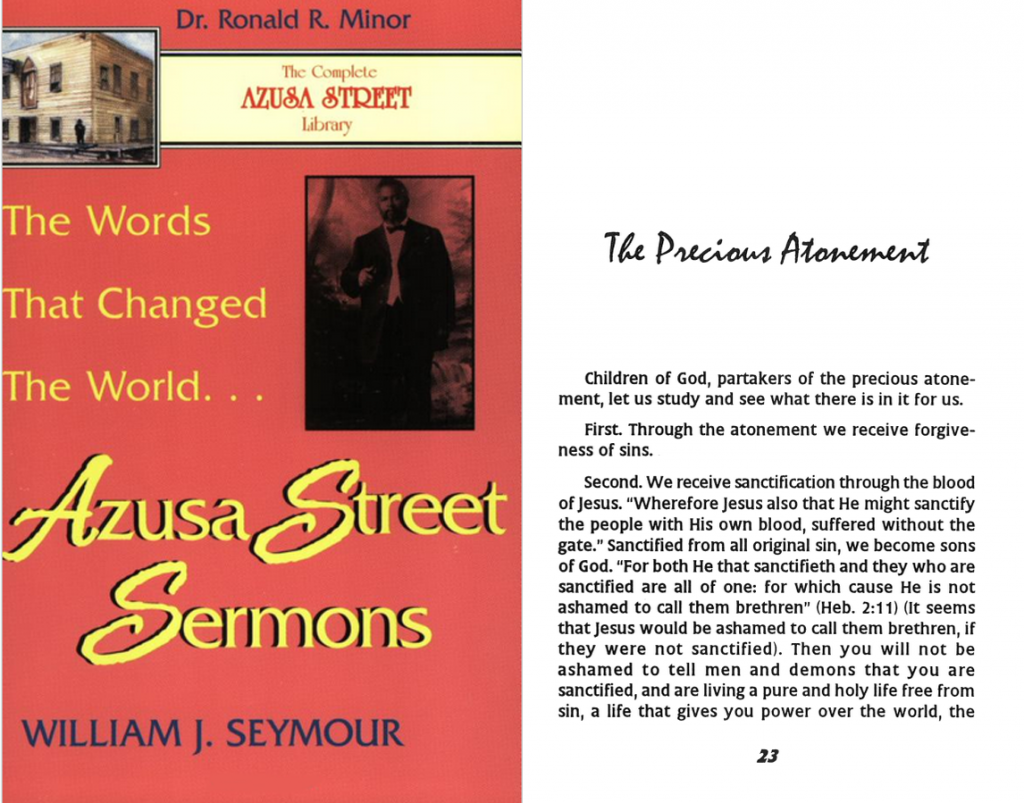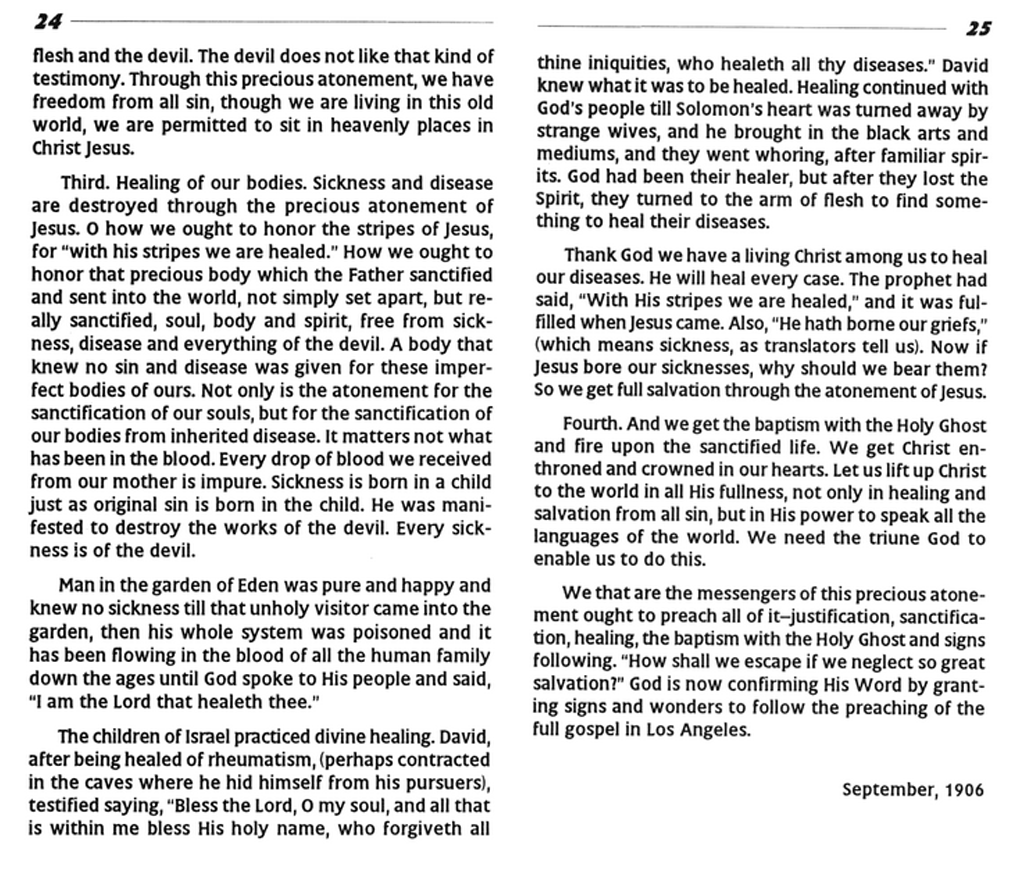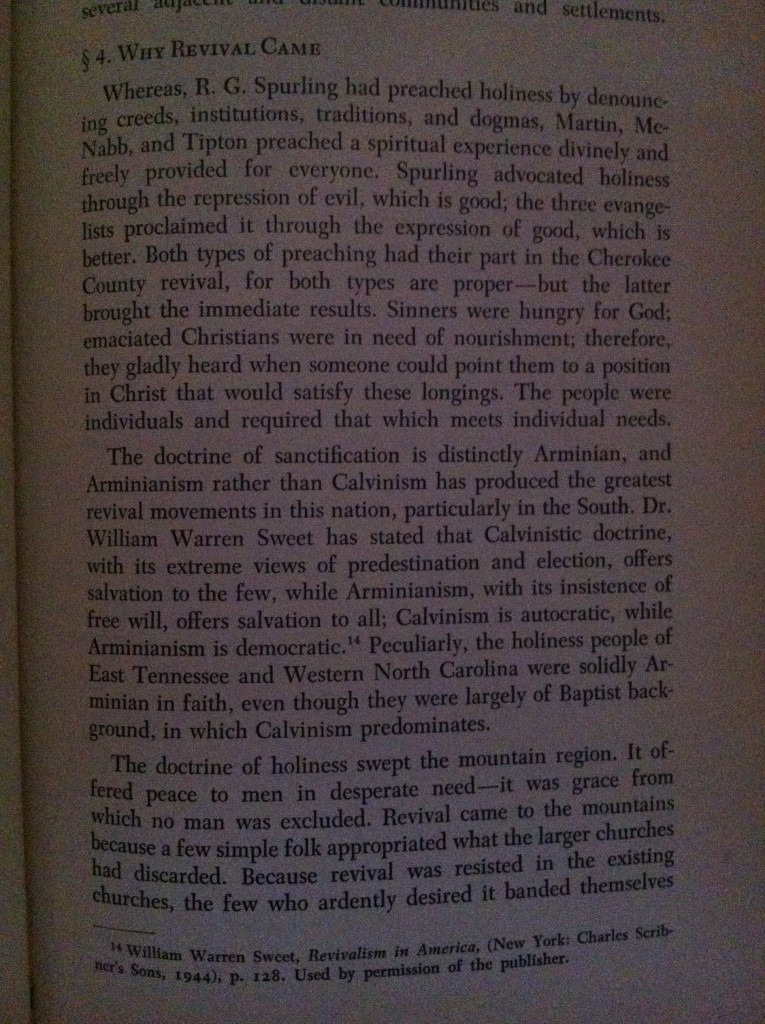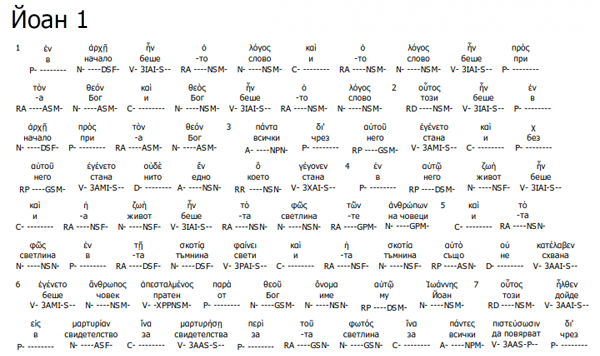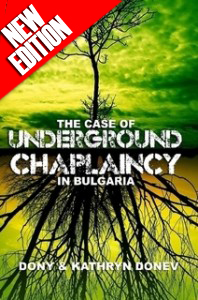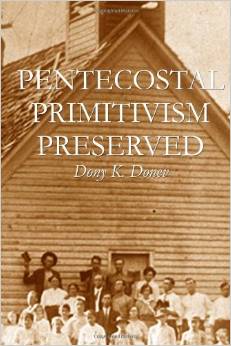Azusa Street Sermons: The Precious Atonement
Why Revival Came? by Dr. Charles Conn
95 Years Ago Voronaev Set Sail on a Pentecostal Mission to Europe
![51Sa1IcA8OL._SY344_PJlook-inside-v2,TopRight,1,0_SH20_BO1,204,203,200_[1]](https://cupandcross.com/wp-content/uploads/2014/03/51Sa1IcA8OL._SY344_PJlook-inside-v2TopRight10_SH20_BO1204203200_1.jpg) Rev. Ivan Voronaev’s last letter to Assemblies of God headquarters in Springfield, Missouri was received by Rev. J. Roswell Flower on June 22, 1920 and was marked “He plans to return to Russia.” The letter outlined Voronaev’s six-point mission strategy:
Rev. Ivan Voronaev’s last letter to Assemblies of God headquarters in Springfield, Missouri was received by Rev. J. Roswell Flower on June 22, 1920 and was marked “He plans to return to Russia.” The letter outlined Voronaev’s six-point mission strategy:
- he was leaving with his family and some brothers from New York to Russia on July 13, 1920 on the steamboat “Madonna”
- Voronaev trusted the Lord for the finances necessary to complete the mission
- First Russian Assembly of New York was poor and unable to meet the ministry expenses
- Voronaev was unable to get in touch with Assemblies of God missionaries Johnson and Schmidt
- but planned to preach in Russia
- finally, the group had decided to purchase Russian Bibles and New Testaments in New York to take to Russia.
The group included the families of Voronaev, Zaplishny, Koltovich, along with V. Klibik and N. Kardanov from Ossetia. They could only purchase tickets for the deck, which proposed problems for the children during the cold ocean nights. According to Voronaev’s later records, the group set sail from New York on July 15, 1920 (thou Martha C. Zaplishny- Jackson recalls July 8th or 17th in various statements). The only standing proof for the exact departure date is the ship’s records with the French Fabre Line.
Madonna sailed via Marseille in France and Naples, Italy. The group’s trip to Europe included a stop in Greece before reaching Constantinople on August 10, 1920. Both Voronaev and Zaplishny’s children have pictures from visiting “several other Balkan countries,” thou not well documented and quite improbable. Consecutively, when the Zaplishny family had to flee Bulgaria in 1924, they used the same route taking a train to Cherbourg, France and then a boat to New York’s Ellis Island.
Through all these difficulties, Voronaev reached Bulgaria by the end of 1920 and Odessa in the U.S.S.R by August 12, 1921. The movements his mission started from Varna to Vladivostock were Pentecostal pioneers for this part of the Old World. By the time Voronaev was arrested in 1930, over 400 Pentecostal churches with 20,000 members strong were started by his ministry throughout Eastern Europe.
Read about the legacy of Ivan Voronaev:
- Ivan Voronaev: The Death of a Hero is a Legacy to Remember
- Arrest and Imprisonment of Rev. Ivan Voronaev (1930)
- Arrest and Imprisonment of Ekaterina Voronaev (1933)
More about the Voronaev’s children:
Ivan Voronaev in the historical archives:
- Finding Ivan Voronaev (a.k.a. John Voronaeff) at the Graduate Theological Union of Berkeley, California
- Letters from Bulgaria: Overview of Rev. Ivan Voronaev’s Correspondence
Greek-Bulgarian Interlinear New Testament Based on the Nestle-Aland 28/ UBS-4
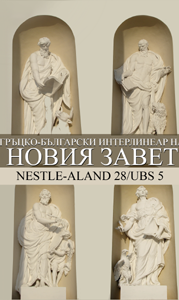 For Easter 2015, after over eight years of hard work and much difficulties, Cup & Cross Ministries was able to complete and publish the first ever Greek-Bulgarian interlinear based on the Nestle-Aland 28/ UBS-4 texts. This first edition is dedicated to those students of the Bible, who prefer working with the original texts, rather than using the multitude of new Bible revisions often with religious and ideological orientation. More information about this publication is available at: [Amazon.com]
For Easter 2015, after over eight years of hard work and much difficulties, Cup & Cross Ministries was able to complete and publish the first ever Greek-Bulgarian interlinear based on the Nestle-Aland 28/ UBS-4 texts. This first edition is dedicated to those students of the Bible, who prefer working with the original texts, rather than using the multitude of new Bible revisions often with religious and ideological orientation. More information about this publication is available at: [Amazon.com]
The Everlasting Gospel: The Significance of Eschatology in the Development of Pentecostal Thought
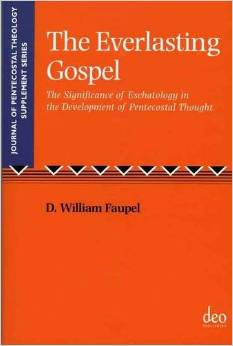 The Everlasting Gospel: The Significance of Eschatology in the Development of Pentecostal Thought by D.W. Faupel follows the following outline:
The Everlasting Gospel: The Significance of Eschatology in the Development of Pentecostal Thought by D.W. Faupel follows the following outline:
- The Pentecostal Message: In this chapter Faupel explores the pre-formation of the Pentecostal message. He relates its content to the Full Gospel, which includes: salvation, sanctification, baptism with the Holy Spirit, healing and second coming.
- Context of Pentecostal Thought: In this chapter Faupel gives a brief sketch of the American context at the end of the 19th century. His focus on the American culture as ground for Pentecostalism, however, seemed quite narrow especially in retrospect to the original glassolalia experience by the disciples on the Day of Pentecost.
- The Pentecostal Message: Faupel offers an interesting observation on the lives, messages, ministries and outcomes of three major pre-Pentecostal American figures. He writes of J.A. Dowie. Frank W. Sandford and Charles Parham.
- The Coming of the Latter Rain: Faupel begins the story of Seymuor as a continuation of the historical formation of the Pentecostal Movement linking it back to the ministry of Parham. He explores the beginning of the Azusa Street revival and its affect on Los Angeles, the United States and worldwide.
- Defining the Parameters of Pentecostal Though: The end of Faupel’s story focuses on the outcomes of the Latter Rain phenomenon. Main concern of the plot is the ministry of Durham in Chicago, who proposes the idea of Finished Work. Durham claims that thought Calvary there are only two works of grace, the salvation experience and the baptism with the Holy Spirit. The sanctification, he proposes, comes in the life of the believer through the salvation experience.
European Delights: A Sweet Journey Through Europe
 Cakes, cookies, custards, puddings, candies, fried dough, pies and pastries. From the unconventional, recipes of Albanian Walnut Lemon Cake and Lithuanian Poppy Seed Cookies to the classic Tiramisu and Macaroon recipes, this cookbook takes your taste buds on a sweet journey throughout Europe. Desserts have come a long way since the dried fruits of the ancient civilizations as the first candies to soufflés and cakes once sugar began to be manufactured in the Middle Ages. This cookbook contains some of both the simple and more advanced recipes of Europe. It features 40 authentic dessert recipes representing nearly every European country and with each recipe there is a story to tell. The word “dessert” originated from the French word desservir “to clean the table” and these delights will make you want to clean your table a bit faster.
Cakes, cookies, custards, puddings, candies, fried dough, pies and pastries. From the unconventional, recipes of Albanian Walnut Lemon Cake and Lithuanian Poppy Seed Cookies to the classic Tiramisu and Macaroon recipes, this cookbook takes your taste buds on a sweet journey throughout Europe. Desserts have come a long way since the dried fruits of the ancient civilizations as the first candies to soufflés and cakes once sugar began to be manufactured in the Middle Ages. This cookbook contains some of both the simple and more advanced recipes of Europe. It features 40 authentic dessert recipes representing nearly every European country and with each recipe there is a story to tell. The word “dessert” originated from the French word desservir “to clean the table” and these delights will make you want to clean your table a bit faster.
Books & Publications by Cup & Cross Ministries in 2014
Arrest and Imprisonment of Ekaterina Voronaev (1933)
The (un)Forgotten: Story of the Voronaev Children
Missions & Intercultural Studies
Dony K. Donev, D. Min.
Presented at the 40th Annual Meeting of the Society for Pentecostal Studies
“On one miserable cold, dark night in March 1933, Mother had gone to bed sick. After midnight a loud knock at the door awakened us. Three Secret Police officers entered and one of them shouted, “Citizen Ekaterina Voronaeff, you are under arrest.” Mother hurriedly dressed. My little brother and sister awoke and began to cry as they saw the police ripping our clothes and mattresses …. I can still see my mother standing in the middle of that awful room with graying hair, lips trembling on her sweet pale face, and her bright blue eyes filled with tears. Heartbroken, Timothy and Hope sobbed a last loving good-bye as our dear mother was dragged away to prison.”
![51Sa1IcA8OL._SY344_PJlook-inside-v2,TopRight,1,0_SH20_BO1,204,203,200_[1]](https://cupandcross.com/wp-content/uploads/2014/03/51Sa1IcA8OL._SY344_PJlook-inside-v2TopRight10_SH20_BO1204203200_1.jpg) Ekaterina Voronaev would spend 24 long and horrible years in prison before seeing her children again. After being arrested on April 10, 1933 she spent 15 months in the Odessa prison interrogated constantly, 18 hours straight at times, and was sentenced to life imprisonment in mid-Asia. Petition sent to the Aid to Political Prisoners led by Ekaterina Peshkova (wife of Russian author Maxim Gorky) had little effect on the situation. Her children were allowed to see her only once, before she was sent to Siberia.
Ekaterina Voronaev would spend 24 long and horrible years in prison before seeing her children again. After being arrested on April 10, 1933 she spent 15 months in the Odessa prison interrogated constantly, 18 hours straight at times, and was sentenced to life imprisonment in mid-Asia. Petition sent to the Aid to Political Prisoners led by Ekaterina Peshkova (wife of Russian author Maxim Gorky) had little effect on the situation. Her children were allowed to see her only once, before she was sent to Siberia.
As both Voronaev parents were now in prison, and their American born boys had been safely returned, Paul, Hope and Timothy remained in Communist Russia. They were all born there, but this was hardly their country. Their parents have travelled the world and returned to their motherland only to find out it had become foreign to them. Paul was born somewhere on the Eastern Asian border, Hope and Timothy in Odessa, but now that they had no city on earth to call home and no one left to look after them. These children truly belonged to Heaven and God…
Prophetic and Persecuted Movement
![51DUWeyraBL._SY344_PJlook-inside-v2,TopRight,1,0_SH20_BO1,204,203,200_[1]](https://cupandcross.com/wp-content/uploads/2014/04/51DUWeyraBL._SY344_PJlook-inside-v2TopRight10_SH20_BO1204203200_1.jpg) Since a social movement that purposes liberation of the individual is always rejected by the present political and economic powers, Pentecostalism arises and develops in the midst of constant persecution and resistance. The constantly present struggle against evil, wrong and unrighteousness is the power that moves Pentecostalism to its final purposes. Once persecution disappears, Pentecostalism loses its original power and turns to a nominal religious organization, which continues to function and exist, however, outside the boundaries of its original purpose.
Since a social movement that purposes liberation of the individual is always rejected by the present political and economic powers, Pentecostalism arises and develops in the midst of constant persecution and resistance. The constantly present struggle against evil, wrong and unrighteousness is the power that moves Pentecostalism to its final purposes. Once persecution disappears, Pentecostalism loses its original power and turns to a nominal religious organization, which continues to function and exist, however, outside the boundaries of its original purpose.
The theology of the Persecuted Church is a theology of martyrdom. The context of persecution is a constantly present formational factor in Pentecostalism worldwide, and as such it is a universal characteristic of the movement. Only as such can Pentecostalism act in its God-given prophetic authority. In the same prophetic power in which John prophesies of the coming Baptiser with the Holy Spirit, the Early Pentecostals preached about the Fire from Heaven prior to the actual experience of the Holy Spirit baptism. The message of the movement then becomes a prophetic utterance under which the movement grows and develops to the point of fulfillment of the promise given by God.
Arrest and Imprisonment of Rev. Ivan Voronaev (1930)
![51Sa1IcA8OL._SY344_PJlook-inside-v2,TopRight,1,0_SH20_BO1,204,203,200_[1]](https://cupandcross.com/wp-content/uploads/2014/03/51Sa1IcA8OL._SY344_PJlook-inside-v2TopRight10_SH20_BO1204203200_1.jpg) The (un)Forgotten: Story of the Voronaev Children
The (un)Forgotten: Story of the Voronaev Children
Missions & Intercultural Studies
Dony K. Donev, D. Min.
Presented at the 40th Annual Meeting of the Society for Pentecostal Studies
The enormity of the movement could not be left unnoticed by the Bolsheviks. After crashing every form of organized life in Russia, sentencing for life in the death camps of Gulag or simply shooting on the spot every leader and visionary of freedom, the atheistic government turned to the only organization apart from the Communist party that could still gather thousands of people – the Christian Church. The persecution of evangelicals was ordered from the very top and began with a full force.
First, in the winter of 1929, the Voronaevs were thrown on the street from their home on 22 Jukovskaya Str. and the father was constantly called and harassed by the Communist police. As soon as a friend took them in his home at 8 Arteoma Str., Ivan was arrested and beaten severely.
Over 800 Russian pastors were arrested and imprisoned in 1930. Some of Voronaev’s closest coworkers, among which B.R. Koltovich, were also taken away by the KGB and Ivan knew his turn was coming soon. His son Paul recalls him praying and “…. pleading with God for days for strength and courage…. Then it happened. It was a cold winter night, we were asleep. It was after the midnight hour. We were rudely awakened by a pounding at the door and someone calling with a loud voice, “Open the door, in the name of the law.”
After a thorough examination of their quarters the agents confiscated boxes of Bibles and religious literature and Rev. Voronaev was taken away.
“Mother walked silently beside him. In a moment, life had become a vacuum; husband taken from her, six children to care for, the youngest not even three years old. How could she endure it! …. Once more father embraced mother and tried to comfort her with the words “Cheer up, dear Katusha. God will take care of you … go back and take care of the children. Everything will be all right …”
For the next several months, Rev. Voronaev was moved around from prison to prison, “….battened, tortured, and kept without visitors or mail privileges. Then without trial, he was sentenced to lifelong exile in a Siberian prison.” On one rare occasion, his second oldest son Peter was allowed to visit him in prison for a period of 10 days. Peter took the difficult journey alone and travelled 11 days by train to Moscow and Kotlas, riverboat to Yst-Vym and secretly hidden on the back of a prison truck to the Siberian consecration camp of UFT-Uza reaching his father’s prison barrack at last. It was the last time any of his children ever saw him.


